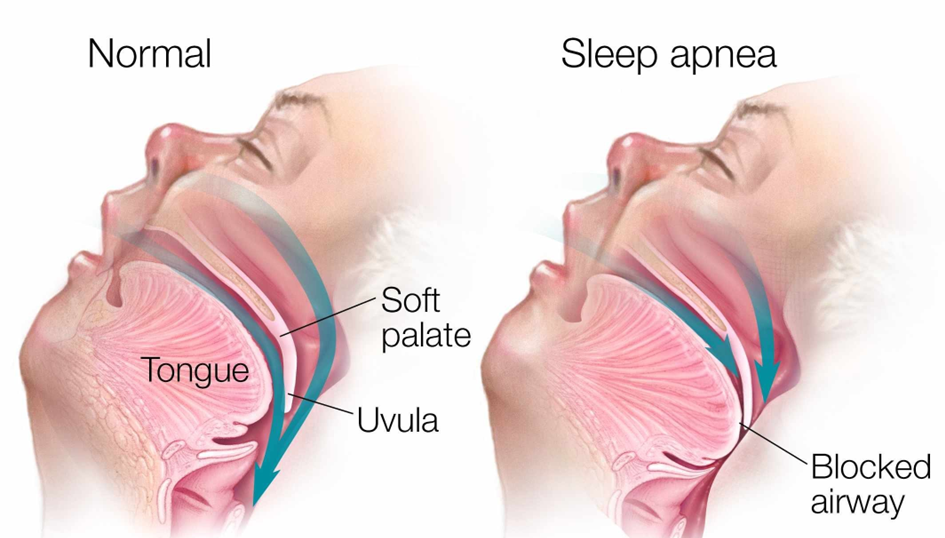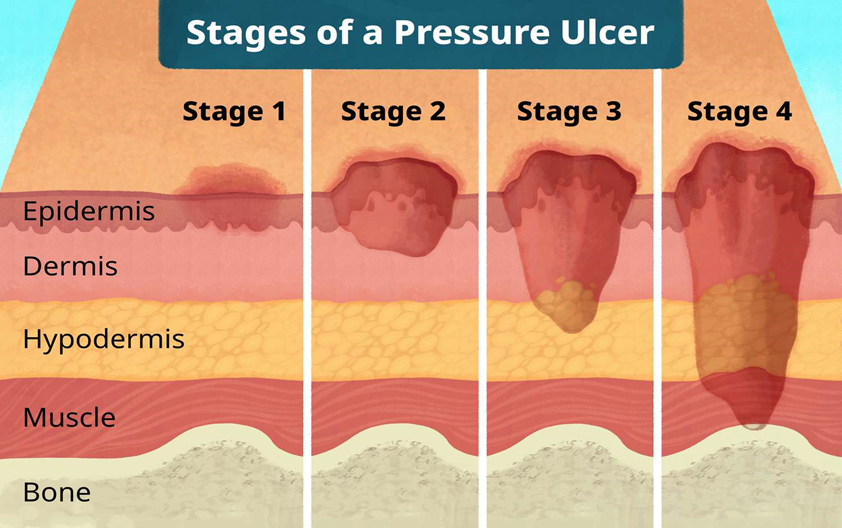A nurse is teaching a client who is obese and has obstructive sleep apnea on how to decrease the number of nightly apneic episodes. Which client statement indicates an understanding of the teaching?
I could lose about 50 pounds; I might stop having so many apneic episodes.
I sleep better if I take a sleeping pill at night.
I’ll get a humidifier to run at my bedside at night.
It might help if I tried sleeping only on my back.
The Correct Answer is A
Choice A Reason:
Losing weight is one of the most effective ways to reduce the severity of obstructive sleep apnea (OSA). Excess weight, especially around the neck, can increase the risk of airway obstruction during sleep. Studies have shown that losing even 5-10% of body weight can significantly improve OSA symptoms. Therefore, the statement about losing 50 pounds indicates a good understanding of how weight loss can help manage sleep apnea.

Choice B Reason:
Taking a sleeping pill at night is not recommended for individuals with obstructive sleep apnea. Many sleeping pills, especially those that are sedatives or muscle relaxants, can worsen sleep apnea by relaxing the muscles of the throat, leading to increased airway obstruction. Therefore, this statement does not indicate an understanding of the appropriate management of sleep apnea.
Choice C Reason:
Using a humidifier can help alleviate some symptoms associated with sleep apnea, such as dry mouth and nasal congestion, but it does not directly reduce the number of apneic episodes. While a humidifier can improve comfort, it is not a primary treatment for reducing apneic episodes in OSA patients.
Choice D Reason:
Sleeping on the back is generally not recommended for individuals with obstructive sleep apnea. This position can cause the tongue and soft tissues to collapse to the back of the throat, worsening airway obstruction. Side sleeping is usually recommended to help keep the airway open. Therefore, this statement does not indicate an understanding of the best sleep practices for managing sleep apnea.
Nursing Test Bank
Naxlex Comprehensive Predictor Exams
Related Questions
Correct Answer is A
Explanation
Choice A Reason:
Repeating auscultation after asking the client to take a deep breath and cough is the first intervention the nurse should take. This action helps to clear any secretions or mucus that might be causing the crackles. If the crackles persist after the client coughs, it indicates that the sounds are likely due to fluid in the lungs, which requires further assessment and intervention. This step ensures that the nurse accurately identifies the cause of the crackles before proceeding with other interventions.
Choice B Reason:
Instructing the client to limit fluid intake to less than 2,000 mL/day might be appropriate in cases of fluid overload or heart failure, but it is not the first intervention. The nurse needs to confirm the cause of the crackles before making any recommendations about fluid intake. Limiting fluid intake without proper assessment could lead to dehydration and other complications.
Choice C Reason:
Placing the client on bed rest in semi-Fowler’s position can help improve lung expansion and oxygenation by reducing pressure on the diaphragm. However, this is not the first intervention. The nurse should first determine if the crackles are due to secretions that can be cleared by coughing. Semi-Fowler’s position is beneficial for patients with respiratory distress, but it does not address the immediate need to reassess lung sounds.
Choice D Reason:
Preparing to administer antibiotics is not the first intervention. Antibiotics are used to treat infections, and the nurse needs to confirm whether the crackles are due to an infection or another cause before administering medication. Immediate administration of antibiotics without proper assessment could lead to inappropriate treatment and antibiotic resistance.
Correct Answer is C
Explanation
Choice A Reason:
Alginate dressings are typically used for wounds with moderate to heavy exudate because they are highly absorbent. Stage I pressure ulcers do not usually produce exudate, making alginate dressings unnecessary and inappropriate for this type of wound.
Choice B Reason:
Hydrogel dressings are designed to provide moisture to dry wounds and are more suitable for wounds with minimal to no exudate. While they can be used for stage I pressure ulcers, they are not the most common choice as these ulcers do not typically require additional moisture.
Choice C Reason:
Transparent dressings are ideal for stage I pressure ulcers because they protect the skin from friction and shear while allowing for continuous observation of the wound. These dressings maintain a moist environment, which is beneficial for healing, and are easy to apply and remove without causing additional trauma to the skin.

Choice D Reason:
Wet-to-dry gauze dressings are generally used for debridement of necrotic tissue in more advanced wounds. They are not suitable for stage I pressure ulcers, which do not have necrotic tissue and do not require debridement.
Whether you are a student looking to ace your exams or a practicing nurse seeking to enhance your expertise , our nursing education contents will empower you with the confidence and competence to make a difference in the lives of patients and become a respected leader in the healthcare field.
Visit Naxlex, invest in your future and unlock endless possibilities with our unparalleled nursing education contents today
Report Wrong Answer on the Current Question
Do you disagree with the answer? If yes, what is your expected answer? Explain.
Kindly be descriptive with the issue you are facing.
